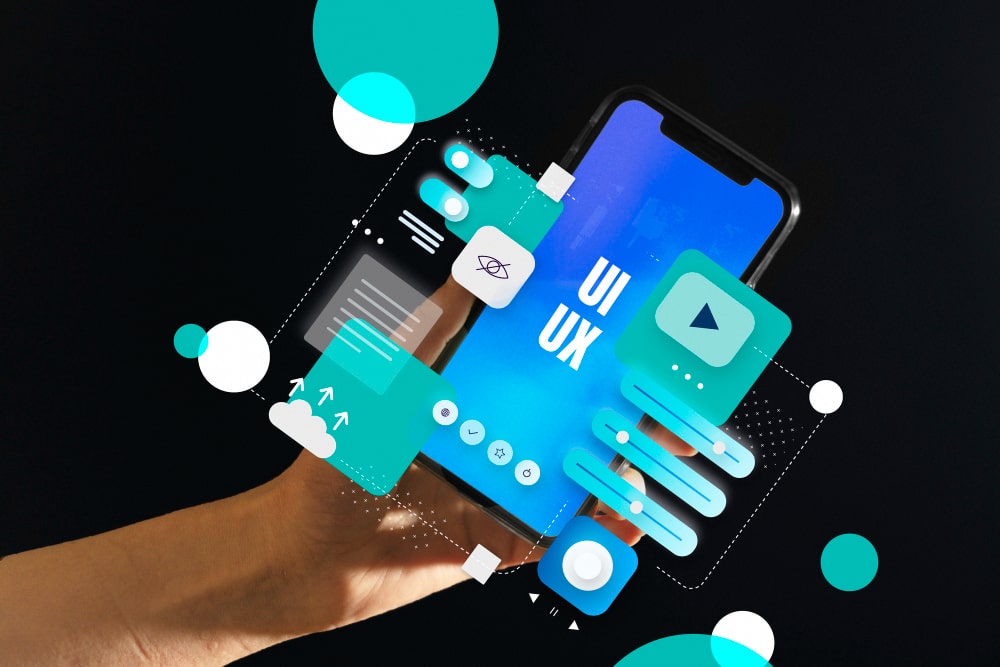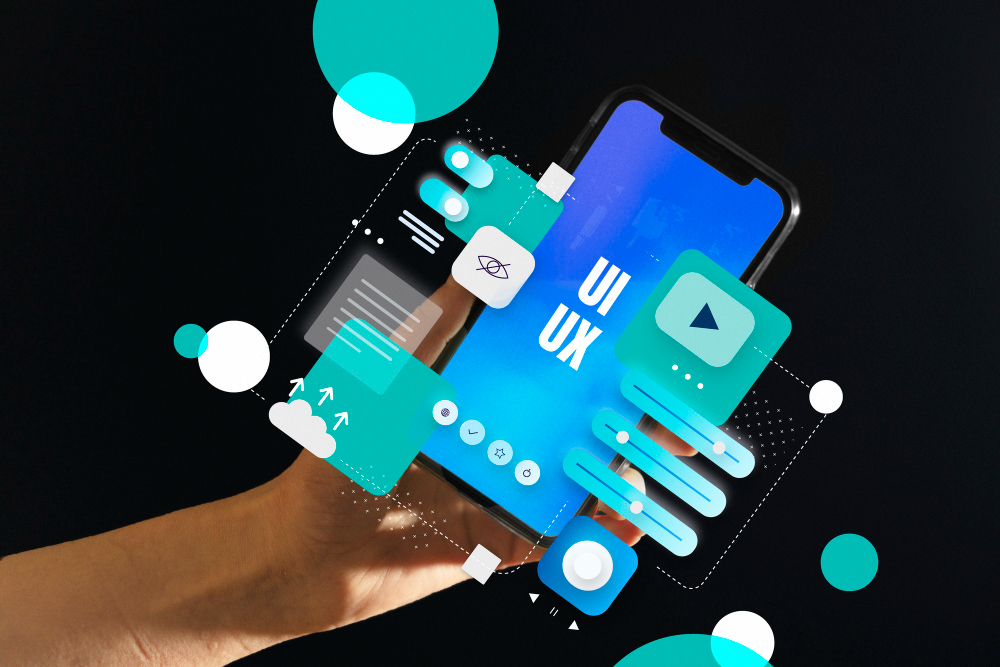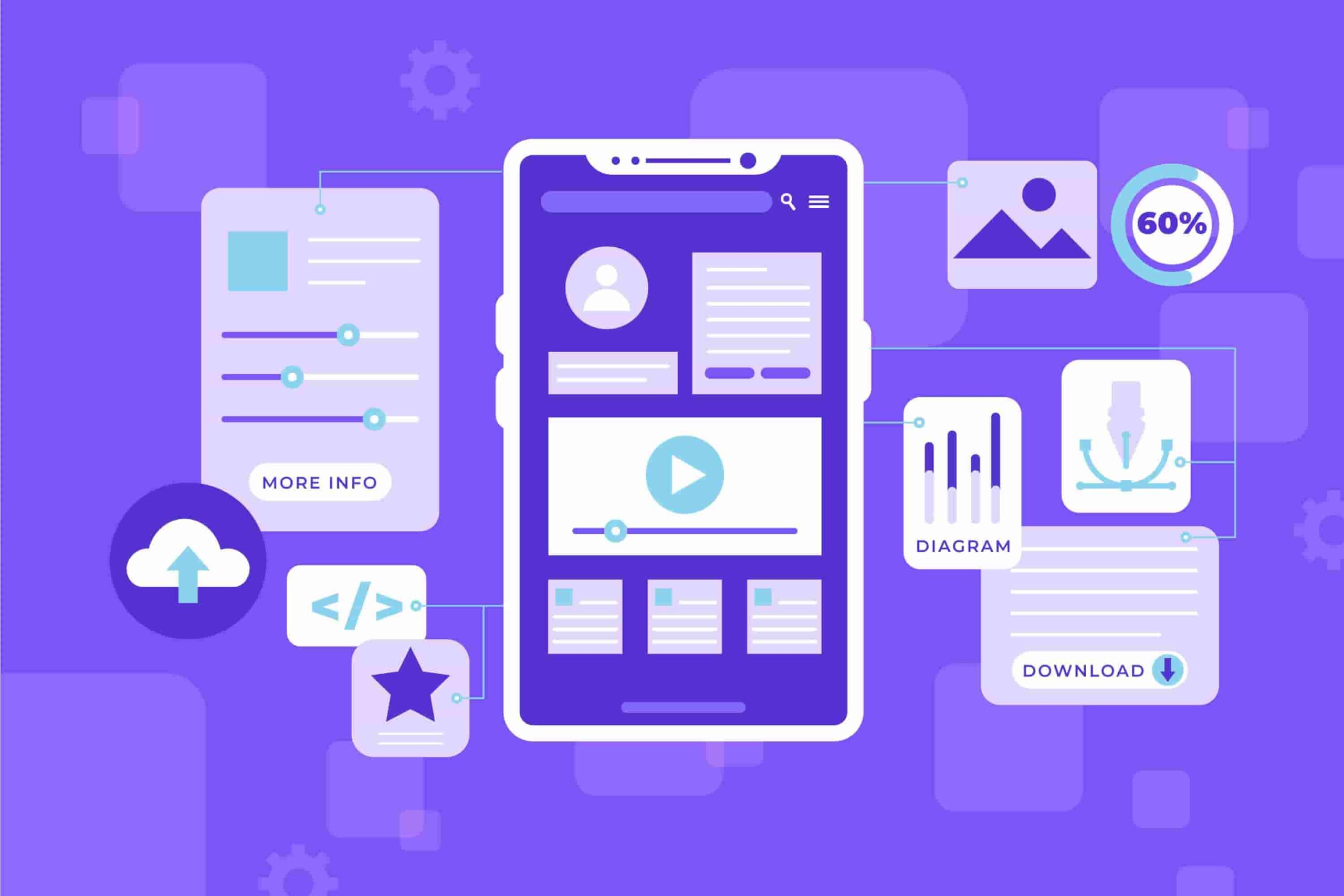Top 12 Emerging Future Mobile App Technologies for 2024 and Beyond

As we journey further into the digital age, mobile app technologies continue to evolve at a rapid pace, shaping the way we interact with the world around us. From artificial intelligence to augmented reality, the landscape of mobile app development is teeming with innovation. In this blog, we’ll explore the top 12 emerging mobile app technologies that are poised to redefine the mobile experience in 2024 and beyond.
5G Connectivity:
The rollout of 5G networks promises to revolutionize mobile app experiences with lightning-fast speeds, low latency, and increased bandwidth. Mobile apps leveraging 5G technology will deliver immersive multimedia content, real-time gaming experiences, and streaming without buffering, unlocking new possibilities for innovation.
Artificial Intelligence (AI) and Machine Learning (ML):
AI and ML algorithms are powering intelligent mobile apps capable of personalized recommendations, predictive analytics, and natural language processing. From virtual assistants to image recognition, AI-driven mobile apps enhance user experiences by delivering contextual and adaptive interactions tailored to individual preferences and behaviors.
Augmented Reality (AR) and Virtual Reality (VR):
AR and VR technologies are blurring the lines between the digital and physical worlds, enabling immersive experiences that transcend traditional boundaries. Mobile apps incorporating AR and VR features offer interactive gaming, immersive shopping experiences, and virtual tours, transforming how users engage with content and interact with their surroundings.
Internet of Things (IoT) Integration:
The proliferation of IoT devices opens new avenues for mobile app development, enabling seamless integration with connected devices and sensors. Mobile apps leveraging IoT technology can control smart home devices, monitor health metrics, and track environmental data, providing users with greater convenience, efficiency, and insights into their daily lives.
Progressive Web Apps (PWAs):
PWAs combine the best features of web and mobile apps to deliver fast, responsive, and engaging experiences across devices. With offline capabilities, push notifications, and home screen installation, PWAs offer a native app-like experience without the need for app store downloads. As a cost-effective and scalable solution, PWAs are gaining traction among businesses looking to reach wider audiences.
Voice-Activated Interfaces:
Voice-activated interfaces powered by natural language processing and voice recognition technology are transforming how users interact with mobile apps. From voice search and dictation to hands-free control, voice-activated mobile apps offer greater accessibility and convenience, particularly in situations where hands-free operation is essential.
Edge Computing:
Edge computing brings computation and data storage closer to the source of data generation, reducing latency and enhancing performance for mobile apps. By processing data locally on edge devices or servers, mobile apps can deliver faster response times, support real-time analytics, and operate more efficiently, particularly in environments with limited connectivity.
Blockchain Technology:
Blockchain technology is disrupting industries beyond cryptocurrency, offering secure and transparent solutions for mobile app development. Mobile apps leveraging blockchain technology enable secure transactions, digital identity verification, and decentralized applications (DApps), empowering users with greater control over their data and transactions.
Biometric Authentication:
Biometric authentication methods such as fingerprint scanning, facial recognition, and iris scanning are becoming increasingly prevalent in mobile apps for enhanced security and user authentication. By replacing traditional password-based authentication methods, biometric authentication offers a more secure and seamless user experience while reducing the risk of unauthorized access.
Quantum Computing:
While still in its infancy, quantum computing holds the potential to revolutionize mobile app development by solving complex problems at unprecedented speeds. Mobile apps leveraging quantum computing algorithms can unlock new capabilities in areas such as cryptography, optimization, and machine learning, paving the way for groundbreaking innovations in the years to come.
Extended Reality (XR):
Extended Reality (XR) encompasses a spectrum of immersive technologies, including AR, VR, and mixed reality (MR), that blend the physical and digital worlds. Mobile apps embracing XR technologies offer immersive gaming, interactive storytelling, and virtual collaboration experiences, transforming how users engage with content and interact with their surroundings.
Cybersecurity Solutions:
With the increasing threat of cyber-attacks and data breaches, cybersecurity solutions are paramount for mobile app developers. Mobile apps incorporating robust encryption, multi-factor authentication, and secure data storage mechanisms protect user data and privacy, fostering trust and confidence among users in an increasingly interconnected world.
Edge AI:
Edge AI combines artificial intelligence with edge computing capabilities, enabling mobile devices to perform AI tasks locally without relying solely on cloud resources. By processing data closer to the source, edge AI enhances privacy, reduces latency, and enables real-time insights and decision-making. Mobile apps leveraging edge AI can deliver personalized experiences, intelligent automation, and advanced analytics while minimizing bandwidth usage and enhancing user privacy.
Gesture Recognition:
Gesture recognition technology enables mobile devices to interpret human gestures, movements, and expressions, enhancing user interactions with mobile apps. From gesture-based navigation to immersive gaming experiences, gesture recognition technology offers intuitive and engaging ways for users to interact with mobile apps without the need for physical touch or traditional input methods.
Predictive Analytics:
Predictive analytics leverages machine learning algorithms to analyze historical data and predict future outcomes or trends. Mobile apps incorporating predictive analytics can anticipate user preferences, behavior patterns, and needs, enabling personalized recommendations, proactive notifications, and dynamic content delivery. By harnessing the power of predictive analytics, mobile apps can deliver more relevant and timely experiences, driving user engagement and satisfaction.
Cross-Platform Development Frameworks:
Cross-platform development frameworks such as React Native, Flutter, and Xamarin enable developers to build mobile apps that run seamlessly across multiple platforms with a single codebase. By streamlining development efforts and reducing time-to-market, cross-platform development frameworks offer cost-effective solutions for reaching a broader audience across iOS and Android devices. With advancements in cross-platform tooling and performance optimization, these frameworks continue to gain popularity among developers seeking efficient and scalable app development solutions.
Natural Language Generation (NLG):
Natural Language Generation (NLG) technology transforms structured data into human-readable text, enabling mobile apps to generate dynamic content, personalized recommendations, and automated reports in natural language. NLG-powered mobile apps can create personalized product descriptions, financial summaries, or real-time news updates, enhancing user engagement and comprehension. By automating content creation and delivery, NLG technology enables mobile apps to deliver timely and relevant information tailored to individual user preferences.
Biometric Data Analysis:
Beyond authentication, biometric data analysis technologies analyze biometric data such as heart rate, blood pressure, and sleep patterns to provide insights into user health and well-being. Mobile apps incorporating biometric data analysis can offer personalized fitness plans, health monitoring tools, and wellness recommendations, empowering users to track and improve their overall health and lifestyle. By leveraging biometric data, mobile apps can deliver personalized experiences that promote user engagement and long-term behavior change.
Natural Language Understanding (NLU):
Natural Language Understanding (NLU) technology enables mobile apps to interpret and understand user input in natural language, facilitating conversational interactions and voice-based commands. By integrating NLU capabilities, mobile apps can offer conversational interfaces, virtual assistants, and chatbots that understand user intent and respond contextually. NLU-powered mobile apps enhance user convenience, accessibility, and engagement by enabling intuitive and natural interactions with digital interfaces.
Hyperautomation:
Hyperautomation combines artificial intelligence, machine learning, and robotic process automation (RPA) to automate complex business processes and workflows. Mobile apps incorporating hyper-automation capabilities can streamline tasks, automate repetitive processes, and optimize productivity across various industries and sectors. By automating manual tasks and decision-making processes, hyper-automation enables mobile apps to drive efficiency, reduce errors, and empower users with intelligent automation solutions.
By embracing these additional emerging mobile app technologies, developers can stay ahead of the curve and deliver innovative, user-centric experiences that meet the evolving needs and expectations of mobile users in 2024 and beyond. Each of these technologies presents exciting opportunities for unlocking new functionalities, enhancing user engagement, and driving digital transformation across industries and domains.
Conclusion:
As we look ahead to 2024 and beyond, the landscape of mobile app technologies is brimming with potential, offering endless opportunities for innovation and transformation. From 5G connectivity to quantum computing, emerging technologies are reshaping the mobile app ecosystem, enabling developers to create richer, more immersive, and more secure experiences for users around the globe. By embracing these top 12 emerging mobile app technologies, developers can unlock new possibilities and usher in a new era of mobile innovation.






